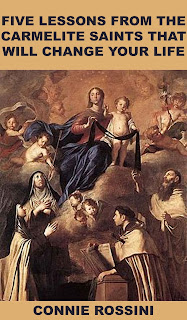Why Civil Society Needs Great Stories
Members of the Dallas Chapter of the Saint Thomas More Society, with local bishops after the annual Red Mass. About a month ago, I presented an address to the local Saint Thomas More Society entitled "Literature and the Moral Imagination, or Why Civil Society Needs Great Stories." This blog was instrumental in getting me the invitation to speak to this group of Catholic lawyers, and the talk I gave drew together a number of things I've discussed here, so I thought I would give the text of the lecture a permanent home here. You can find it by clicking the "Literature and the Moral Imagination" tab at the top of this page. Or just click this link . Let me know what you think!










